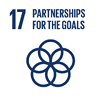
Project
 GRD – Government Revenue Dataset
GRD – Government Revenue Dataset
Theme: Transforming societies
This project examines the political economy factors which explain the design and structure of tax systems in LMICs, in order to deepen our understanding of how successful tax systems develop, why tax reforms succeed or fail, and why the gap in tax performance between higher and lower income countries persists. This research builds on a body of evidence produced under UNU-WIDER’s 2019–23 work programme on Transforming economies, states, and societies, in particular the work carried out for the Fiscal states – the origins and developmental implications project.
All requests for research proposals, events, working papers, data updates, and journal articles related to this project will be available here.
This project is part of UNU-WIDER’s Creating the fiscal space for development research area.
This project is part of the Domestic Revenue Mobilization programme.

Focal points | Kunal Sen
Affiliated expert | Antonio Savoia
Project coordination | Irais Martinez
Communications | Marie-France Boucher, Tristan Reid
The Government Revenue Dataset (GRD)
Financial support from the Norwegian Agency for Development Cooperation (Norad)
This project builds on work completed for Fiscal states — origins and development implications
This paper investigates the impact of double taxation treaties (DTTs) on resource revenue mobilization in 91 resource-rich countries from 2000 to 2019. We calculate annual degree centrality indices to measure countries’ integration into the tax...
This paper examines how economic sanctions affect the allocation of workers across formal and informal employment. We analyse the case of the unprecedented sanctions imposed on Iran in 2012 and focus on the manufacturing sector. Employing a...
ARTICLE IS ON EARLY VIEW | This study investigates the effects of taxation on income inequality in an unbalanced panel of 45 countries in Sub-Saharan Africa over the period 1980–2018. We use two-stage least squares and the instrumental variables...
While it is recognised that the ability of states to raise revenues (i.e., fiscal capacity) is important for the provision of key public goods in less developed economies, it is less clear what its determinants are and what explains cross-country...
This paper compares two important sources of tax revenue statistics for African countries, namely the Africa Tax Administration Forum’s African Tax Outlook and the United Nations University World Institute for Development Economics Research's...
Pursuing the global development agenda will require genuine commitment from political leaders and significant stepping-up of government efforts. But...
In an environment with extensive corruption where much of the population evades paying their full taxes due, we tackle the question of optimal taxation when constituencies with conflicting objectives (the poor and the rich) push tax policy in...
This article examines the impact of foreign aid and taxes on government spending for 67 developing countries during 1980–2013 using dynamic heterogeneous (panel) time-series techniques. We find that spending, aid and tax ratios comprise an...
Across the Global South, governments continue efforts to increase domestic revenues and capacity for public spending. As concerns over debt distress...
Double taxation treaties, by assigning taxing rights to rival countries and thereby eradicating double taxation, aim to facilitate cross-border trade and investment. The eradication of double taxation is achieved through reductions in withholding tax...
This paper establishes how accountability quality might mediate the effect of tax revenue on sustainable development in 41 sub-Saharan African countries for the period 1990–2019. The empirical evidence is based on three empirical strategies...
There is substantial empirical literature on the impact of climate vulnerability on economic outcomes in developing countries. However, this literature is still weak on the impact of climate vulnerability on tax revenue mobilization. To enrich the...
This paper investigates the effects of taxation on income inequality in an unbalanced panel of 45 countries in sub-Saharan Africa over the period 1980–2018. We use instrumental-variable two-stage least squares and instrumental-variable quantile...
Effective domestic revenue mobilization has gained renewed urgency, especially in the light of the need to recover from the COVID-19 pandemic. In taxation debates, the ‘informal sectors’ have hitherto been assumed to be a part of the problem and...

In response to the COVID-19 pandemic, governments financed more than 5000 fiscal support policies worldwide in 2020–21. The pandemic response is an...
A substantial amount of aid to developing countries is given to the government, or goes through the budget, meaning it should have an impact on government fiscal behaviour (particularly on government spending). The few existing empirical studies on...
This paper empirically investigates the link between the level of government revenue per capita and six indicators of quality of governance in an unbalanced panel data set consisting of all countries in the world (217) using data from 1980 to 2020...
There exists a burgeoning empirical literature on the impact of aid fragmentation on development outcomes in aid-receiving countries, with it being widely recognized that aid fragmentation is deleterious. This paper adds to the existing literature by...
Multinational corporations shift a large share of their foreign profits to tax havens and, due to this corporate tax avoidance, governments worldwide lose a portion of their tax revenues. In this paper we study the consequences of multinational tax...

A few months ago, I was asked to deliver a lecture at the Vienna Institute for International Economic Studies on the UNU-WIDER Government Revenue...
This study provides a first attempt to contribute a large-scale assessment of whether crisis response as observed during the COVID-19 pandemic can serve as a feasible blueprint for creating durable solutions across countries. Adopting a lens on...

The first of the Sustainable Development Goals (SDGs) is to end poverty in all its forms, everywhere. The monumental task — a long-time dream of...
The past four decades have seen marked improvements in the collection of domestic revenue (tax and non-tax revenues) in many countries of the Global...
We utilize the recently updated UNU-WIDER Government Revenue Dataset, which covers key indicators on tax and non-tax revenues for 196 countries since the 1980s, to study the dynamics of government revenue tax collection across selected periods from...
This technical note is the third in a series based on the UNU-WIDER Government Revenue Dataset (GRD). The preceding notes have described in detail the variables contained within the GRD and the source selection procedures. In this technical note, we...
Attention on domestic resource mobilization—particularly in developing countries—has increased significantly in recent years. This stems from, among other things, recognition in the Sustainable Development Goals that further domestic funding is...

How can we ensure a resilient and inclusive recovery from COVID-19? How can we hold on to the target of eradicating poverty and hunger by 2030, with...
This technical note is part of a series of technical notes describing the construction of the Government Revenue Dataset (GRD). This document specifically focuses on the composition of variables in the GRD (version August 2021) and across the...
This technical note is part of a series of technical notes describing the construction of the Government Revenue Dataset (GRD). We provide an overview of the underlying sources in the GRD and the criteria used in order to select data from them. In...
Tax abuse is an expensive business. According to a recent report by the Tax Justice Network, avoiding or evading tax deprives governments across the...

Thanks to the updated version of the Government Revenue Dataset (GRD) we are now able to gain a clear picture of tax and other revenue trends in over...

Let’s face it, data is important. It sits at the core of almost everything that we in the development economics research community do. However, the...
The Government Revenue Dataset (GRD) was launched in September 2014 and, in the few years since, has gone on to be recognized as the go-to source for researchers and policy makers seeking cross-country data on government revenues and taxes. However...

Government revenues are central to funding public expenditures in all countries. Increasingly, developing countries must look to raise domestic...

The increasing focus on domestic resource mobilization in developing countries means that, for researchers and policy makers, access to accurate and...

At the core of efforts to meet the Sustainable Development Goals lies a commitment to enhance domestic revenue mobilization. Strengthening capacity to...
This paper explores the effect of party system institutionalization on the reliance of tax systems on the personal income tax. As a first step, the paper re-examines the relationship between party system institutionalization and taxation patterns...
Motivated by the fact that the taxation of natural resources is both crucial and particularly challenging for developing countries, this paper draws on a unique dataset to produce empirical evidence on two issues pertaining to the fiscal impact of...
This paper explores the extent to which government revenue is affected by external shocks, and whether these effects are different for resource-rich as compared with non-resource-rich countries. We are particularly interested in the fate of poorer...
Changes in the tax structure and category of taxes clearly matter when it comes to initiating tax policies. This paper employs data from a sample of 33 transitional countries over the period 1991–2014. It finds that, in a particular transitional...
In this paper we use the new Government Revenue Dataset to analyse fiscal decentralization. We find that developed countries are on average more decentralized than developing countries and that Asia, Europe and North America are among the most...
The global framework for financing development, adopted in 2015, places great emphasis on mobilizing domestic resources to finance the Sustainable Development Goals, which include universal healthcare. In a recent paper Reeves et al. (2015) attribute...
How does conflict affect tax revenue mobilization? This paper uses a newly updated dataset to explore longitudinal trends of tax revenue mobilization prior to, during, and after conflict periods in a selection of conflict-affected states since 1980...
This paper investigates the sources of variability in the mobilization of domestic tax revenue in oil-producing countries. It argues that the type of natural resources exploited during colonial rule can affect the contemporary levels of domestic tax...
This project is part of Creating the fiscal space for development research area
This project is part of Domestic Revenue Mobilization programme (phase 2)
Theme: 2024-27, Fiscal space